[ad_1]
February in our region was a month of waiting for the weather to get better. Warm winds and longer days have finally arrived, and most of us are desperate to get outside and do something. What better place to start than with a patio garden. A simple patio garden doesn’t take much planning, and the plants you want are in the nursery right now.
Create a space
Maybe there is no “patio” within your property yet, but there is a “space” that could be well-suited for one. This can be a tiny section, with just enough room for a chair and a table. Or it can be larger, with the square-footage needed to hold a firepit, a table, and many chairs. Whatever your limitations, this is a place to sit and feel the sun on your face and, if you’re lucky, enjoy some shade from a nearby leafy tree in the summer.
The surface can also be simple. Pea gravel or tiny ¼-inch minus gravel provides a stable and functional surface. The lovely sound of gravel crunching underfoot is very soothing. Gravel patios also tend to drain extremely well, so no rain puddles will ruin the patio party. Of course, you can also use pavers and flagstone to build your entertaining space if the budget allows and skilled labor is available.
Choose your surrounding plants wisely
Plants are more important around a patio seating area than in many other areas of your garden because you are so close to them. Fragrance, screening (for privacy), color, and structure are all matters to be considered. Starting from near the patio and working your way outward is the best way to plant. The following are three key categories of plants that I think are essential in every patio garden. They will add all of the attributes mentioned above and ensure you’ll have something interesting to look at year-round.
Bulbs are a must-have for the spring and autumn color
Small bulbs are good for bringing early blooms to the scene. They also naturalize readily, so they can pool around the patio in different locations. Add ground-cover bulbs that bloom in autumn to gain a splash of extra interest later in the season as well. Here are my favorite bulbs for around the patio.
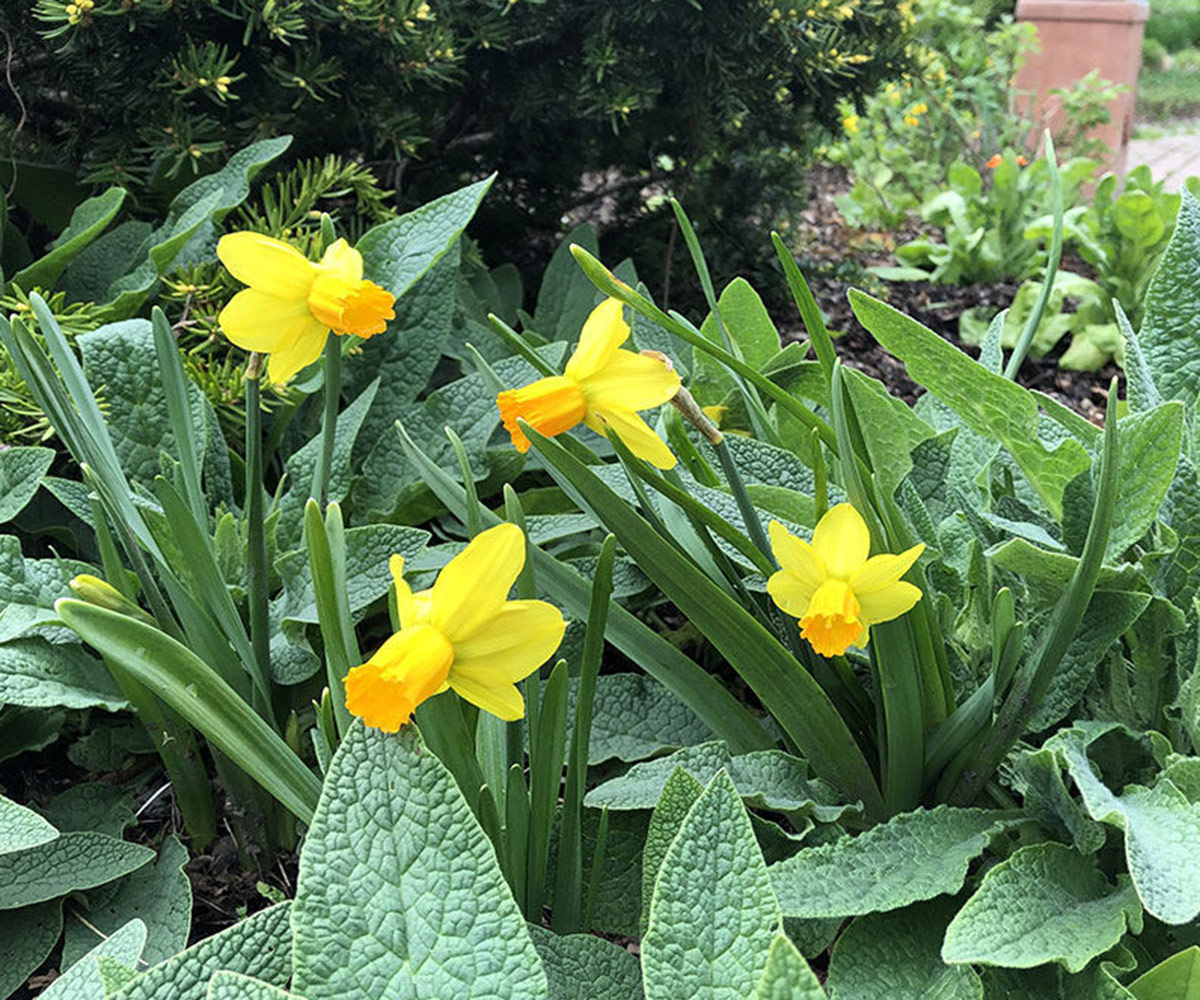 |
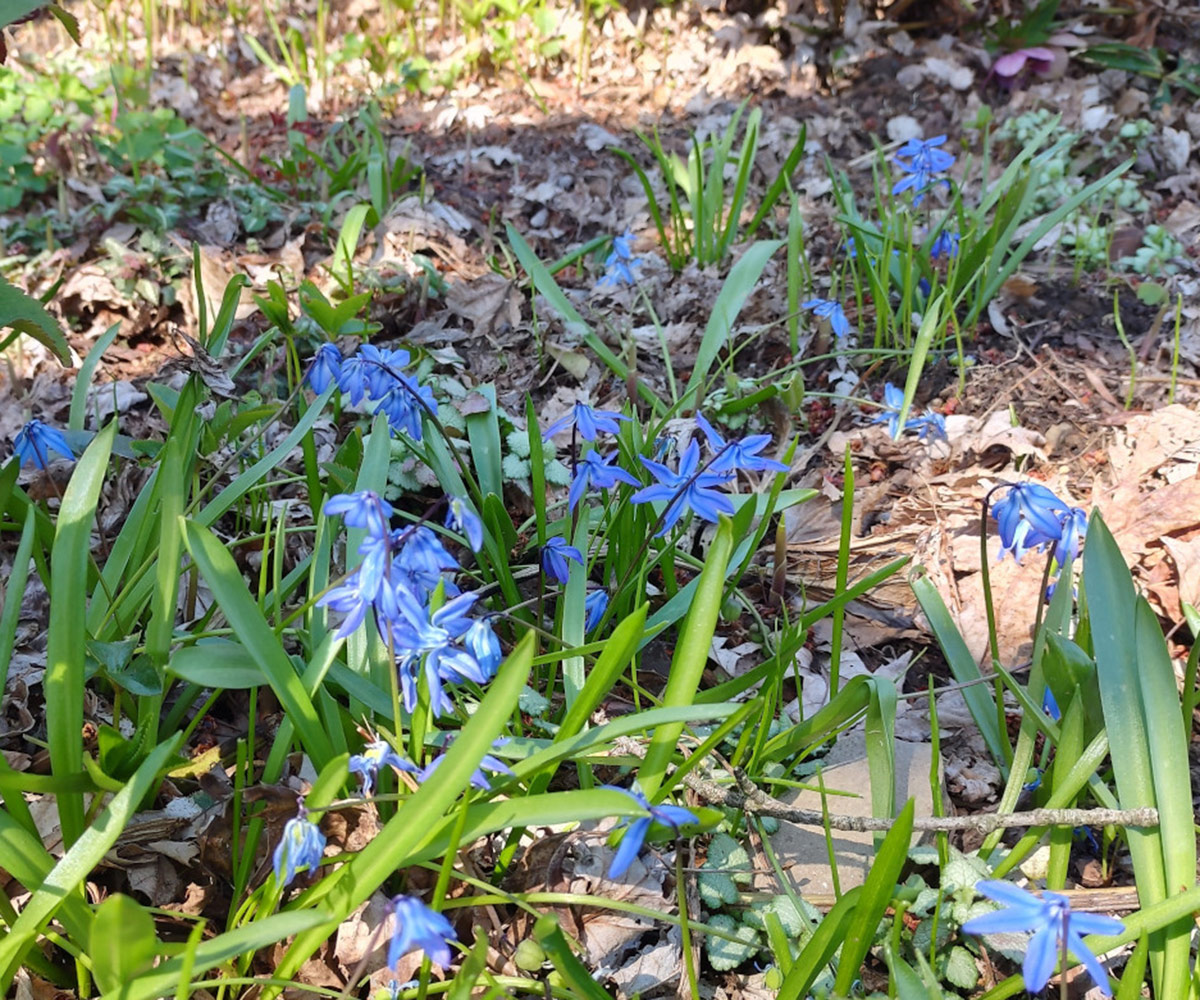 |
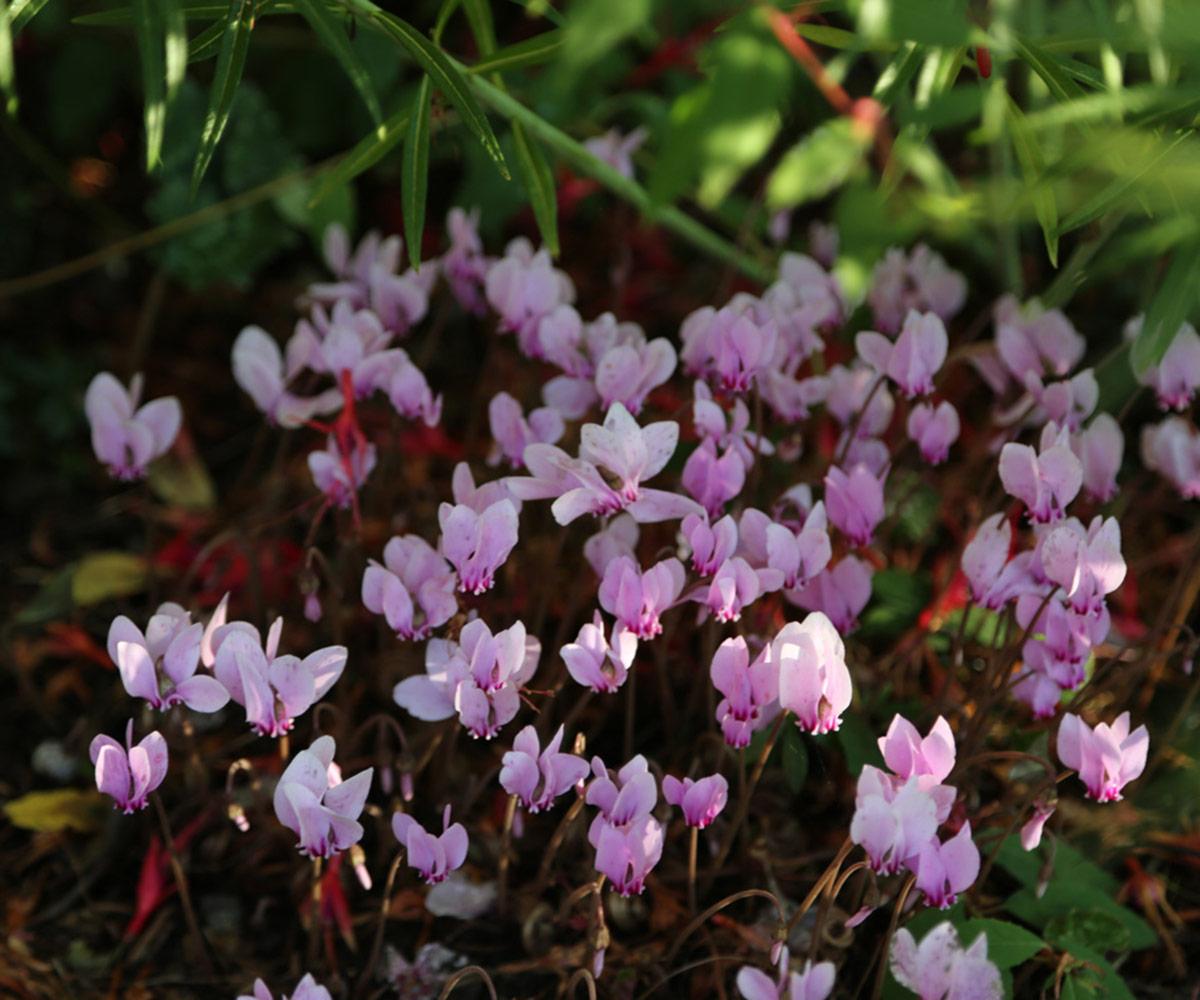 |
- ‘Tete-a-Tete’ daffodil (Narcissus ‘Tete-a-Tete’, Zones 3–8)
- Siberian squill (Scilla siberica, Zones 2–8)
- Hardy cyclamen (Cyclamen hederifolium, Zones 5–9)
Choose evergreens with fragrance
Evergreen can contribute 12-months of structure, privacy, and interest, so they’re essential around a patio. Here in the Pacific Northwest we have quite a few broadleaf evergreens that are fragrant, thanks to their stunning blooms. Here are my favorite fragrant evergreens.
 |
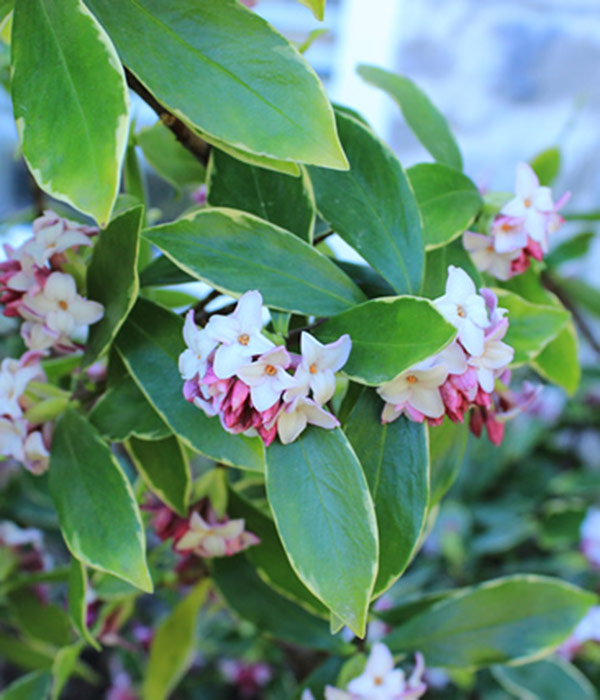 |
- Fragrant sweetbox (Sarcococca ruscifolia, Zones 7–9)
- ‘Marginata’ winter daphne (Daphne odora ‘Marginata’, Zones 7–9)
Plan ahead for shade by investing in a tree or two
In March, shade might not seem so important, but it will in summer. A light-canopy, deciduous tree is a perfect choice for a patio setting. If you have lived in the PNW for any length of time, you know that summers can be warm but can also be cool. The tree should have an open, small-leaved canopy so bits of sun can still get through. I recommend either buying a tree with branches that start up higher on the trunk, or pruning a tree with low branches as it grows so that eventually you’ll be able to sit under it. Here are two of my favorite trees for this situation.
 |
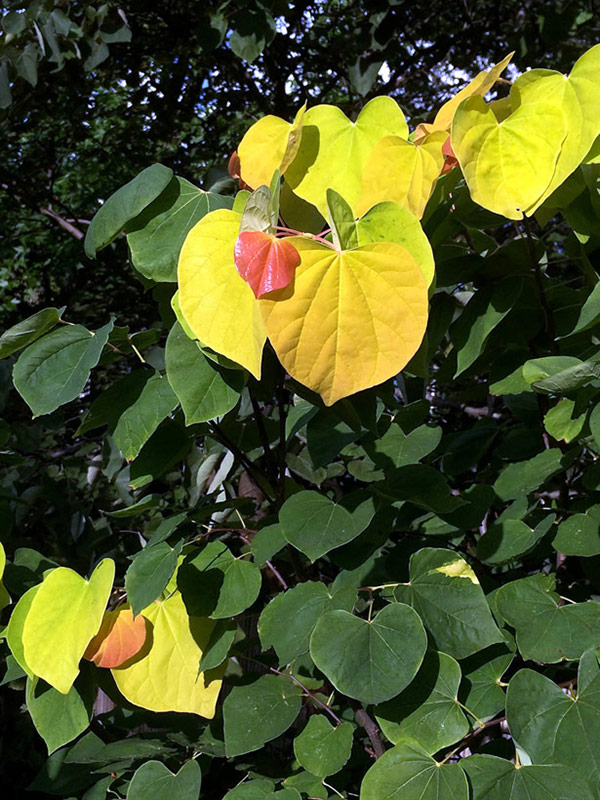 |
- ‘Summer Chocolate’ mimosa (Albizia julibrissin ‘Summer Chocolate’, Zones 6–9)
- The Rising Sun™ eastern redbud (Cercis canadensis ‘JN2’, Zones 4–8)
Now add a chair, a couple of pots, some lighting, and a table for a copy of Fine Gardening magazine, and you will have created the perfect patio garden.
For more Pacific Northwest regional reports, go here.
Susan Calhoun is the owner of Plantswoman Design in Bainbridge Island, Washington.
[ad_2]
Source link





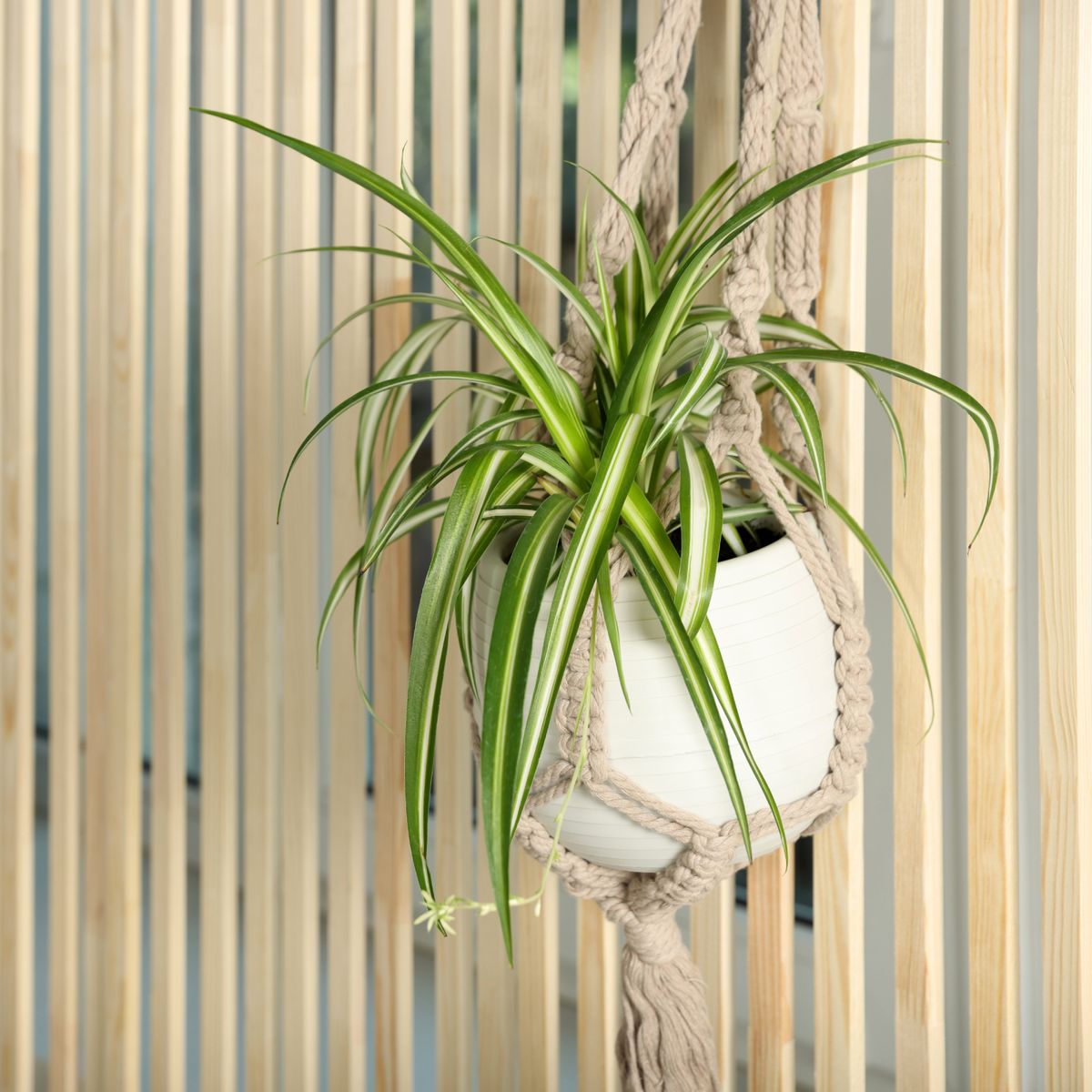

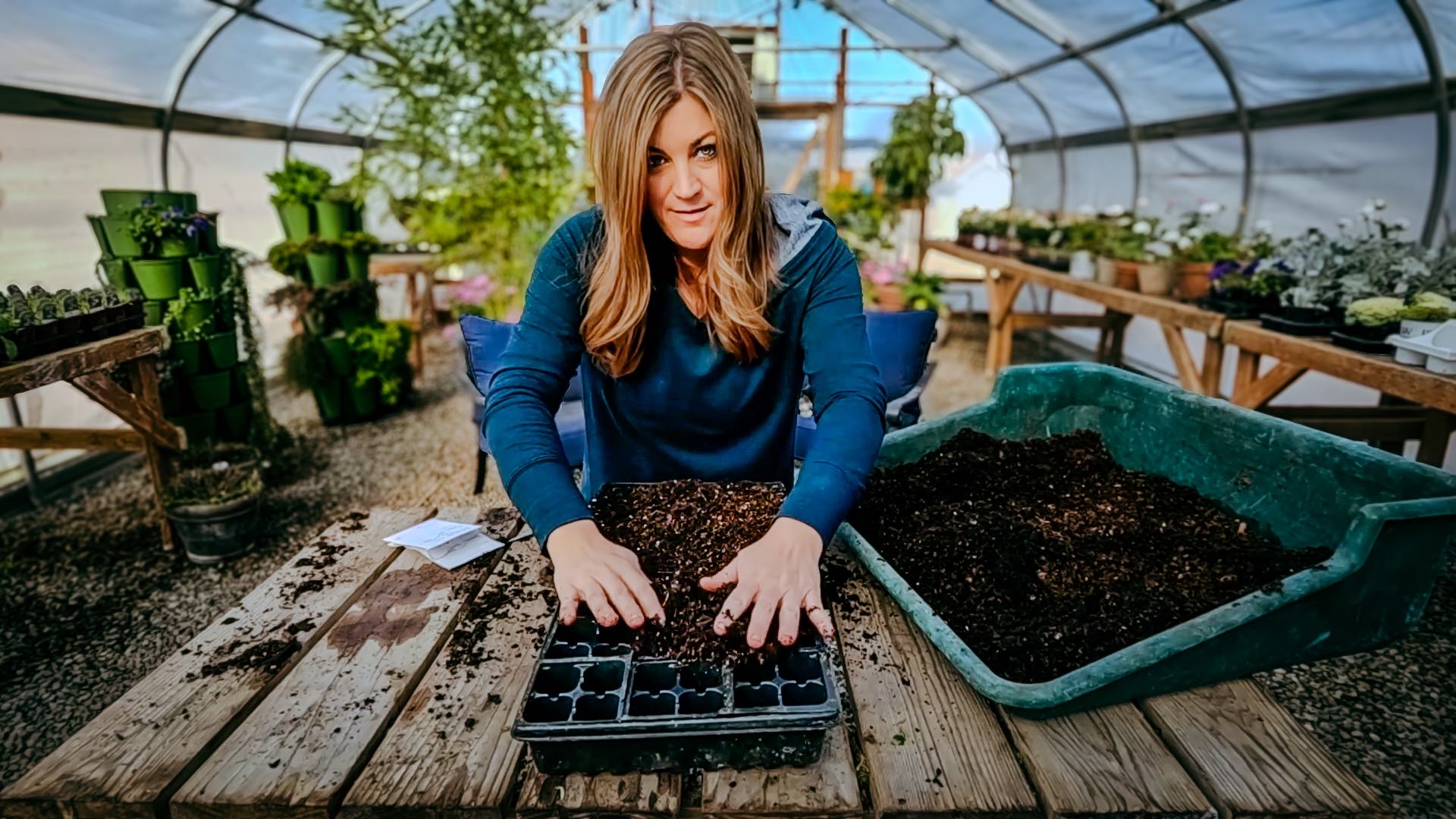
 + Planting String of Watermelon Succulents
+ Planting String of Watermelon Succulents  with Garden Answer
with Garden Answer


